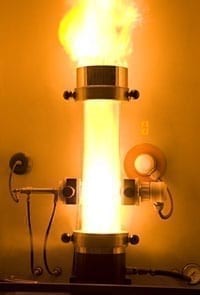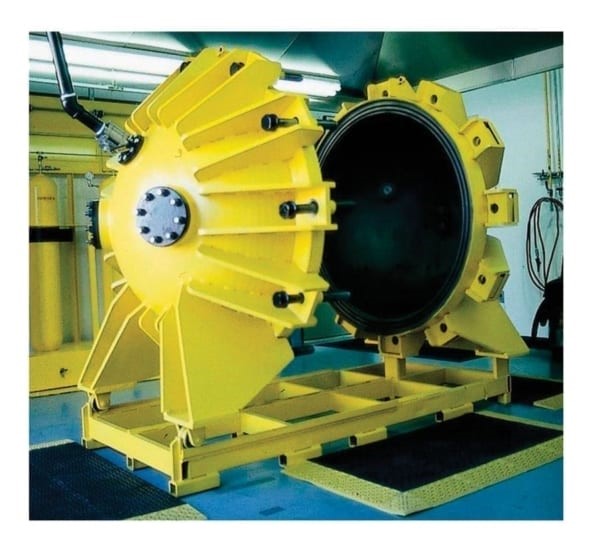Home > Explosion Protection > Combustible Dust Testing
Combustible Dust Testing
Lab testing that turns unknown dust risk into quantifiable data for NFPA 652 DHAs, engineering decisions, and defensible documentation.

High Intent, Start Here
Who this is for
- EHS and safety leaders completing or updating a Dust Hazard Analysis (DHA)
- Plant, operations, and maintenance teams responsible for collectors, ducting, and housekeeping controls
- Engineers selecting venting, suppression, isolation, or spark detection based on real dust behavior
- Owners responding to insurer requests, audit findings, or change control after process modifications
Headquartered in Breinigsville, PA, SSI supports facilities across Pennsylvania and the East Coast with testing coordination and the engineered protection that follows the report.
Jump To
At a glance | Why testing matters | 3-step process | Key tests | How to use results | Sampling tips | Industries | Service area | FAQ | Resources | Request a quote
At a Glance
- Goal: confirm whether your dust is explosible, then quantify severity and ignition sensitivity so protection decisions are defensible.
- Most requested results: Kst and Pmax, often paired with MEC and MIE when ignition source control matters.
- What it supports: NFPA-driven Dust Hazard Analyses (DHAs), insurer documentation, engineered mitigation design, and change control.
- SSI advantage: we help you translate lab results into real safeguards, venting, suppression, isolation, and ignition source controls.
Why Combustible Dust Testing Is Non-Negotiable
If you do not know your dust’s behavior, you are building your DHA and protection strategy on assumptions. Assumptions fail when the process changes, the dust changes, or an ignition source shows up at the wrong time.
Compliance and decision support
- Testing data strengthens a thorough Dust Hazard Analysis (DHA) and supports documented safeguards.
- Kst and Pmax help quantify severity, which impacts venting and suppression decisions.
- MIE and ignition temperatures help prioritize ignition source control, grounding and bonding, and housekeeping strategy.
- LOC supports evaluation of inerting and oxygen reduction strategies when applicable.
Our 3-Step Combustible Dust Testing Process
- Contact SSI. Tell us what material you handle, where dust is generated, and what decision you are trying to make. Contact us.
- Collect and ship a representative sample. We provide clear guidance so your sample reflects real conditions and supports defensible results.
- Receive your report, then plan next steps. Once testing is complete, SSI helps you connect results to DHA documentation and engineered explosion protection options.
Key Tests We Perform
Testing needs vary by process, equipment, and the decision in front of you. These are the most common results requested by EHS teams, engineers, insurers, and AHJs.
| Test or Value | What it tells you | What it drives |
|---|---|---|
| Explosibility screening | Go or no-go indication for explosible behavior under standardized conditions. | Whether a dust is treated as an explosible hazard, and what tests are required next. |
| Kst and Pmax | Severity indicators, pressure rise behavior and maximum pressure potential. | Venting and suppression decisions, scenario severity documentation, mitigation strategy selection. |
| LOC (limiting oxidant concentration) | Minimum oxygen level required for propagation under test conditions. | Feasibility of inerting and oxygen reduction strategies. |
| MIE (minimum ignition energy) | Ignition sensitivity to sparks, static discharge, and low energy ignition sources. | Bonding and grounding priorities, ignition source controls, static risk focus. |
| Minimum dust layer ignition temperature | Temperature at which a dust layer can self-ignite on a hot surface. | Hot surface controls, smolder prevention, cleaning intervals and priorities. |
| Particle size analysis | Characterizes particle distribution, finer dust often increases risk. | Change control, process troubleshooting, and risk comparisons after modifications. |
| Custom process simulations | Replicates specific process conditions for complex scenarios. | Tailored inputs for unique equipment, materials, or operating conditions. |


How Facilities Use Test Results
The report is only useful if it changes decisions. SSI helps translate results into practical safeguards that match your equipment, layout, and operating reality.
Common next steps after testing
- Complete or update a Dust Hazard Analysis (DHA) with defensible severity and ignition sensitivity inputs.
- Select engineered protection for collectors and connected equipment, based on severity and constraints.
- Prioritize ignition source controls, static discipline, and housekeeping controls based on MIE and thermal behavior.
- Choose mitigation and isolation strategies to prevent propagation through ducting and connected processes.
If your focus is collectors, start with this guide: Dust Collector Explosion Protection, The Ultimate Guide.
If you are evaluating mitigation options, these pages align with typical design paths: Explosion Venting, Explosion Suppression, Explosion Isolation, Spark Detection.
Sampling Tips That Prevent Bad Data
A non-representative sample creates non-representative results. If you want decision-grade data, treat sampling like evidence collection.
- Sample where the dust actually accumulates, such as collectors, ducting, or equipment, not only a clean raw material.
- Do not mix dust sources unless they truly mix in normal operation.
- Document the process point including date, batch, and any relevant moisture or drying conditions.
- Avoid contamination with clean tools and containers, no oily residue, no cross contamination.
- Flag changes upfront if your process has been modified or if dust characteristics vary over time.
Who Commonly Needs Dust Testing
Any facility generating fine particulate solids can have combustible dust risk. Testing is common across:
- Food processing, baking, ingredients, sugar, spices
- Woodworking and forest products, including wood dust protection
- Grain handling and agriculture
- Chemicals, plastics, resins, additives
- Pharma, nutraceuticals, fine powders
- Metalworking and powdered materials
- Recycling and bulk material handling
Service Area
Testing can be initiated from anywhere via sample shipping. SSI’s value is the combination of testing coordination plus practical engineering guidance and implementation support after the report.
SSI supports industrial facilities across Pennsylvania, New Jersey, New York, Maryland, Delaware, Virginia, West Virginia, Ohio, Massachusetts, Connecticut, Rhode Island, New Hampshire, Vermont, and Maine.
Frequently Asked Questions
What is combustible dust testing?
Combustible dust testing is a laboratory process that determines whether a dust can behave explosively under standardized conditions, then quantifies characteristics used for risk assessment and protection design.
Why is dust testing important for a DHA?
Test data helps a DHA move from assumptions to quantifiable, defensible decisions, especially when selecting safeguards and documenting severity and ignition sensitivity.
Who should get their dust tested?
Facilities that generate, process, convey, or collect fine particulate solids should evaluate whether testing is appropriate, especially when completing a DHA, installing collectors, or making process changes.
How often should dust be re-tested?
Retesting is typically justified when material composition, particle size, moisture content, supplier, or process conditions change, or when old data cannot be shown equivalent to the dust present today.
Resources and Downloads
Combustible Dust Testing Brochure (PDF)
Internal links that help buyers move faster
- Dust Hazard Analysis (DHA)
- Dust Collector Explosion Protection, The Ultimate Guide
- Wood Dust Explosion Protection for East Coast Facilities
- Explosion Detection and Control
- Explosion Venting
- Explosion Suppression Systems
- Guide to Explosion Isolation
- Spark Detection Systems
External authority references
- NFPA 652, fundamentals of combustible dust
- NFPA 68, deflagration venting
- NFPA 69, explosion prevention systems
- OSHA, combustible dust resources
- U.S. Chemical Safety Board (CSB)
Ready to Understand Your Dust Hazard?
Request a quote and tell us what decision you are trying to make, DHA documentation, collector protection, ignition source control, or a change control retest. We will align the testing plan to the way your process actually runs.
- Material name, process step, and where dust is collected
- Equipment involved, collector, silo, dryer, mill, conveying, ducting
- Your driver, DHA, insurer, audit, project, change control, incident
- Deadline, if tied to an inspection, renewal, or project schedule
Contact SSI 1-800-360-0687 (610) 709-5000
Suppression Systems Inc.
155 Nestle Way, Suite 104, Breinigsville, PA 18031
Note, SSI partners with Fike for explosion testing laboratory capabilities to analyze material samples, then SSI supports the hazard identification, documentation, and engineered next steps.
